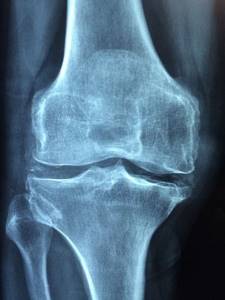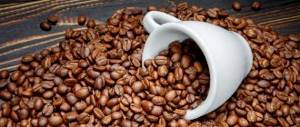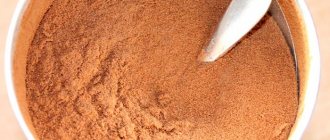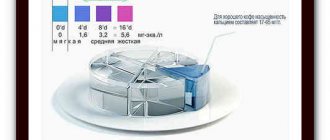A cheerful morning without joint pain
Through the joint efforts of the staff of the Norwegian Institute of Occupational Safety and Health and the Hospital at the University of Oslo, some anesthetic effect of caffeine has been established.
Scientists tracked the effect of coffee on joints by analyzing how a morning portion of it changes the pain sensations of office workers throughout the day.
Of the 48 people participating in the experiment, 22 experienced chronic pain in the shoulders and cervical spine.
During the study, subjects daily, for at least 1.5 hours in a row, actively worked at the computer, “clicking” the mouse without interruption. Under normal conditions, such “enthusiasm” for work often ends in pain in the shoulders and neck.
The working day of 19 out of 48 subjects began with a portion of a tonic drink. During the experiment, all of them did not experience pain.
Further tests showed that although drinking coffee beans could not completely eliminate pain, it did significantly alleviate it.
However, what determines the analgesic effect of the drink - “mobilization” of the nervous system or “switching off” muscle spasm that occurs during prolonged static posture - remains to be figured out.
We should know what processes that “start” in the body after drinking a drink adversely affect the condition of moving joints.
The effect of coffee on joints
Joints are involved in any human movement and help us bend and extend parts of the body.
Minerals, macro- and microelements, vitamins and other components that you get from food and drinks have a direct impact on the health and functionality of your joints.
Recently, scientists have become interested in the relationship between arthritis and drinking large amounts of coffee, but so far the research data is contradictory. Let's try to understand the main aspects of the effect of coffee on joints and find out whether you should drink it.
Can coffee affect joint health?
Caffeine itself does not cause joint disease.
Arthritis, that is, inflammation, occurs for various reasons, more often due to injury or lack of special substances, vitamins and minerals, due to the absence of which the condition of the connective tissue worsens.
That is, if a person gets all the necessary nutrients, does gymnastics and warms up or stretches the body, and also drinks coffee, he is unlikely to have arthritis.
Another thing is that most “coffeeholics” are people with sedentary jobs, often experiencing stress, spending a lot of time at the computer, moving little, and often smoking.
That is, their body, in principle, does not have enough minerals and trace elements to maintain healthy joints.
And in this case, caffeine can be both a concomitant factor and a catalyst that accelerates the development of the disease.
Coffee does not cause arthritis in a healthy person, but it can trigger or worsen symptoms.
Why does coffee cause joint pain?
Here are some ways that caffeine can cause joint pain:
Nerve irritation
The nerves that run from the kidneys to the spine can become irritated and inflamed by the toxins in caffeine, especially in the thoracic vertebrae or upper spine. The iliacus muscle group may also be affected. Because these muscles stabilize the hips and lower back, the joints can become susceptible to stiffness and pain.
Insomnia and other side effects
Treating fatigue with caffeine can sometimes cause unwanted side effects that can increase muscle and joint stiffness. For example, insomnia or trouble getting enough deep sleep each night can aggravate existing problems, causing pain that is especially felt immediately after waking up and getting up.
Increased inflammation
Caffeine present in coffee increases the production of stress hormones. As a result of this additional stress, insulin levels increase, which can also increase inflammation and worsen discomfort.
Abruptly giving up your favorite drink will not relieve these symptoms in a few days. The problem is not only caffeine, which, by the way, is even found in tea, chocolate, energy drinks or cola.
Research by scientists
The effect of coffee on joints is a controversial issue. Private studies were carried out over quite a long period of time, but the results turned out to be somewhat confusing, and scientists and doctors have not yet come to a common conclusion.
- A study conducted by American scientists demonstrated that patients who drank up to four cups of coffee daily were more likely to see doctors with developing rheumatoid arthritis. Subjects who drank at least three cups of their favorite espresso had a lower risk of illness. These findings suggest that coffee may stop or slow the progression of arthritis.
- A second study, from Finnish scientists, found that those who consumed four or more cups of their favorite drink daily were twice as likely to report joint pain as those who drank less.
Doctors call a dose of 300 mg of caffeine per day safe for most people. This volume is not harmful and usually does not provoke the development of inflammation.
Coffee and severe joint pain
Severe pain usually occurs when a person is actively working, physically or mentally. In this case, adenosine is more actively synthesized, a neurotransmitter that makes us feel tired, wants to rest, sleep, and also processes pain signals.
Caffeine replaces adenosine in the neuromodulatory system, and, consequently, the pain becomes quieter or disappears altogether, depending on the person’s reaction to caffeine.
These results have reassured many people, but scientists have not yet been able to confirm them with the help of global studies, which means we cannot definitely advise drinking an Americano for pain, but it’s still worth a try. Perhaps your favorite drink will make you feel better.
Effect of coffee on bones
A 2002 review of 32 observational studies found no overall negative effect of caffeine on bone health. Potentially negative effects on bone mineral density have been reported primarily in people with insufficient calcium intake or very high coffee consumption (more than 9 cups per day).
In fact, there is no evidence that caffeine has any harmful effects on bone or calcium health in subjects who consume the recommended daily amount of calcium.
Caffeine consumption may be associated with a modest decrease in bone mineral density, but this does not significantly increase the risk of osteoporosis or the fractures commonly associated with osteoporosis.
Conclusions:
- Drinking coffee does not cause joint diseases if a person eats properly and is physically active.
- Caffeine can worsen arthritic pain if you have health problems or the body is under stress.
- Research on the effect of coffee on joints is contradictory, and doctors have not yet come to a common decision.
- A cup of coffee can reduce pain.
- Most studies have not found any significant effects of caffeine on bone density.
If you liked the site, share the link with your friends. Thank you!
Source: https://kofella.net/kofe-i-zdorove/vliyanie-kofe-na-sustavyi.html
How much coffee should you drink to avoid getting gout?
Each cup of the invigorating drink you drink helps lay down the “building blocks” of uric acid crystals, the main culprit in the metabolic disorders that cause gout. This position of doctors was recently refuted by European scientists who proved that you can drink coffee if you have gout, and, regardless of the caffeine content, it helps treat it.
Gouty arthritis, or gout, is a metabolic disease caused by the inability of the kidneys to remove small particles of “crystallized” urates and uric acid salts and their deposition in the joints.
Prevention of its exacerbations consists in eliminating dietary errors with a sharp limitation of smoked meats, marinades and products containing purine bases - sources of urates. In the acute phase they are not used at all.
Chocolate and strong drinks, including coffee, are considered provocateurs of inflammation and are also excluded.
Is the aromatic drink really dangerous and how does it affect metabolism?
European scientists, having conducted a massive study among 48 thousand men in 2007, found that the risk of “getting” gout was 40% lower among those representatives of the stronger sex who “leaned” on the drink up to 5 times a day. Decaffeinated coffee also reduced the risk of illness.
But tea had no effect on the risks, which is why scientists came to the conclusion that the preventive effect that coffee has on gout should not be associated with the effect of caffeine.
Later, after conducting a study among women, scientists put forward a theory that one of the components of coffee, chlorogenic acid, being a strong antioxidant, reduces the blood levels of two interrelated “provocateurs” of gout - insulin and uric acid. Further experiments confirmed the presence of lower levels of uric acid in the blood of people who allowed themselves several servings of the drink per day.
However, nutritionists insist: if you drink more than 300 ml of the drink during gout, trouble may arise. And the reason for them is caffeine. This alkaloid has a structure similar to allopurinol. Although this drug is used to prevent gout attacks, the initiation of its use often leads to exacerbations due to the active removal of uric acid from the body.
Caffeine works in a similar way: the habit of drinking coffee ensures a constant supply of the alkaloid to the body and a uniform decrease in the level of uric acid. If you indulge in the drink only occasionally, an aggravation occurs due to sharp “jumps” in its content.
Benefit
Although the myth of the diuretic effect of coffee is widespread, its diuretic or dehydrating effects have not been proven in reasonable doses (up to 5-7 cups per day). The diuretic effects of coffee (and other caffeinated drinks) are offset by consuming the daily amount of water.
In 2021, the International Agency for Research on Cancer (IARC) stated that drinking coffee does not cause cancer. Drinkable hot beverages are classified by this agency as a probable human carcinogen (Group 2A).
In terms of mortality, research results are mixed and show only minimal differences. Since correlation does not imply causation, subsequent studies (as opposed to experiments) cannot in principle solve this problem.
A regular 250 ml cup contains:
- Vitamin B2 (riboflavin);
- Vitamin B5 (pantothenic acid);
- Vitamin B1 (thiamine);
- Vitamin B3 (niacin);
- Folic acid;
- Manganese;
- Potassium;
- Magnesium;
- Phosphorus.
The drink also contains antioxidants that reduce the likelihood of heart disease and certain types of cancer.

Thiamine
Phenolic compounds in Arabica:
- 5-caphenylquinic acid;
- Chlorogenic acid;
- 4-caphenylquinic acid;
- 3,4-dicarboxylic acid;
- 4,5-dicaphenylquinic acid;
- Catechol (1,2-dihydrobenzene);
- Pyrogalol (1,2,3-trihydrobenzene);
- 3-methylcatechol;
- 4-ethylcatechol.
Robusta contains a large amount of caffeine, which is one of the stimulants (substances that excite the central nervous system). Caffeine is the most common stimulant in the world. It is found in a variety of foods, but coffee is the largest source.
A typical cup contains approximately 90-100 mg of caffeine. Caffeine causes decreased fatigue and increased brain activity. The stimulating effect on brain activity has been confirmed in a number of clinical trials. Other effects of caffeine include faster reaction times, improved mood, increased alertness, and improved cognitive functions (memory, learning).
The drink is not capable of negatively affecting joints (hip, shoulder, knee and others), causing pain and affecting the course of rheumatic diseases. You can use both instant and grain drinks for joint disorders. Daily caffeine abuse (more than 7 cups of strong drink) can have harmful effects. In high doses, caffeine can have a negative effect on joints and cause effects of varying severity.
Does Coffee Make Bones More Brittle?

Moderate consumption of a drink with a captivating aroma does not have a detrimental effect on joints and improves the metabolism of uric acid when it is disturbed, agrees Victoria Georgievna Barskova, a doctor at the Institute of Rheumatology of the Russian Academy of Medical Sciences in Moscow.
However, we must not forget about the mild diuretic effect of the drink.
With an increase in its consumption, the diuretic effect increases.
Ultra-high doses of coffee accelerate the “leaching” of calcium, phosphorus and magnesium from the bones, increasing the risk of bone demineralization, which must be remembered in case of osteoporosis, and especially in women during menopause.
Research
Analyzes conducted with groups of people show mixed and confusing results, and there are no concrete conclusions about the effect of coffee on human joints and ligaments.
American specialists reported that patients were more likely to complain of joint pain if they drank more than four cups of coffee a day. Doctors recorded the development of rheumatoid arthritis - a serious disease, the nature of which is not fully disclosed.
Finnish scientists found that people who drink more than 4-5 glasses daily and are unable to deny themselves pleasure for many years complain of joint pain twice as often.
But doctors have come to certain conclusions that drinking 250 mg of coffee per day does not harm the joints and does not lead to serious complications.
Is drinking coffee bad for your spine?
The diuretic effect of coffee also poses a certain threat in osteochondrosis: increased loss of moisture accelerates dehydration of intervertebral discs and complicates the “fixation” of calcium in bone tissue.
The intervertebral disc has an oval shape and is a kind of “water cushion” connecting the vertebrae. The outer part of the disc is formed by a spongy capsule. As it “dries out,” the shape of the disc changes, and the contents gradually move outside the spinal column and compress the spinal nerves.
Huge portions of coffee reduce fluid content in tissues, incl. intervertebral discs. With the loss of moisture, their elasticity decreases and the spine becomes less flexible.
Doctors consider coffee and osteochondrosis incompatible because of the drink’s special effect on the nervous system.
It is extremely difficult to accurately calculate a harmless dose of coffee – a tonic drink and a psychostimulant that sets the “start” for the enhanced functioning of the nervous system. Ignorance of “your” measure leads to constant overexcitation of nerve cells and endings. Gradually, the “transmitters” of nerve impulses are depleted, pain syndromes and impaired sensitivity in the limbs arise.
How does coffee affect bones?
In 2002, a study was conducted to study the effect of coffee on human bones, then the answer was negative, and experts did not see the negative effects of caffeine on bones. Problems were observed in people who had insufficient calcium intake, as well as in those subjects who drank at least 9 cups per day.
There is currently no evidence that caffeine has a negative effect on human bones. But experts advise not to abuse this drink, because in patients who drank large amounts of coffee, bone density decreased significantly. Therefore, experts have concluded that excessive coffee consumption increases the risk of osteoporosis and there is a risk of injury.
To prevent your joints from creaking...
Although many studies have forced doctors to change their perspective on some of the properties of coffee, the question of the relationship between its use and exacerbations of joint diseases still remains open.
And one of these questions is how does the drink affect the course of such ailments as arthrosis and arthritis (in forms other than gout)?
Like osteochondrosis, arthrosis of the joints can be conditionally classified as “dry” ailments. Its starting point is considered to be a disruption of the blood supply to small bone vessels, due to which the delivery of nutrients to the cartilage tissue slows down. Not receiving enough nutrition and losing moisture, the cartilage “dries out”, begins to flake and crack in different directions.

Is it possible to “indulge” in strong drinks if you have arthrosis?
Doctors see no reason for a strict ban on drinking coffee for this disease. However, given the diuretic effect of energy drinks, it is recommended to “pamper” yourself with it no more than 2 times a week. It is advisable to prefer weak coffee made from lightly roasted beans to ultra-high portions of a strong drink - it contains fewer alkaloids. The ideal option would be decaffeinated coffee.
But if you have arthritis other than gout, you will have to give up coffee. The inflammatory process in this case is usually a consequence of the immune system attacking the cells of the body’s own tissues. Coffee, a product with high allergenic activity, can become a “catalyst” of inflammation.
What should you eat if you have arthritis?
There are entire groups of foods that must be consumed by people with arthritis.
But from them we can single out the eight most useful; they contain the maximum amount of useful substances that will help the inflamed joint return to normal:
- Salmon. This fish is a champion in omega-3 acid content. They are what the joints need to relieve inflammation. The most useful fish is the one that is caught in the seas, the one that grew up in the wild. In artificially grown fish, the omega-3 content is significantly lower. Salmon also contains vitamin D3, which is essential for bones.
- Almonds, which contain large quantities of vitamin E. Its regular intake into the body helps to strengthen the outer membrane of the joint capsules. This will protect the joint from damage by free radicals. If a person with arthritis is allergic to this nut, then it can always be replaced with sunflower seeds or peanuts. They also contain an important vitamin, but in slightly reduced doses.
- Papaya. Its advantage is that it contains simply a huge amount of vitamin C. According to recent research, it affects both the occurrence and the rate of development of arthritis. It is in vain to believe that there is a lot of this vitamin in oranges and lemons; there is twice as much of it in papaya. In addition, this exotic fruit contains beta-carotene, which is beneficial for joint health.
- Apples, which promote collagen production. It forms the basis of the cartilage tissue of the joint, which is destroyed during arthritis. In order to make up for its loss, you need to eat at least one of this fruit, which is available to almost everyone. Naturally, apples do not contain collagen, but they contain quercetin, which is actively involved in its formation. But in order for the beneficial component to enter the body in full, the apple must not be peeled or thermally processed.
- Black beans are preferable to other varieties when it comes to joint health. Black beans are higher in antioxidants, especially the free radical-fighting anthocyanins, which inhibit the production of cyclooxygenase (cox-2), an enzyme responsible for inflammation. Black beans are also loaded with manganese, an essential mineral for joint health.
- Leaf cabbage. This product is rich in calcium, which is necessary for bones. Most people believe that to get the required dose of this microelement you need to drink milk. In fact, it can be replaced with cabbage, which will be a priority for arthritis patients. After all, it also contains copper (which is needed for the formation of collagen), as well as manganese (which promotes the production of enzymes for the restoration of cartilage tissue). By consuming cabbage even in large quantities, you don’t have to worry about bad cholesterol deposits or weight gain.
- Broccoli is a close relative of kale. They are especially useful for older people. The level of sulforaphane (a component responsible for fighting radicals that destroy cartilage and bone tissue) in the blood is low. In addition, by eating broccoli, a person saturates the body with calcium, vitamins A and C.
- Ginger will relieve swelling and pain. It inhibits the production of COX-2 enzymes, which cause joint inflammation. The effect of ginger is similar to that of NSAIDs. Of course, it is not so strong, but it does not give any side effects.
By consuming these foods, you can help your body cope with arthritis.
But there are also general recommendations, which boil down to the following:
- Vegetables and fruits should be present on the table. But you need to exclude tomatoes and green onions.
- You should consume kefir, fermented baked milk, cottage cheese - all fermented milk products, but not milk.
- Fruits, but only after consulting a doctor. This is due to the fact that the acid contained in some of them can negatively affect the stomach while taking NSAIDs.
- You should only consume meat that does not contain a large amount of fat. For example, rabbit meat, chicken (only boiled chicken, excluding broth, once every 2-3 days).
- Fish must be present on the table of a person with arthritis.











